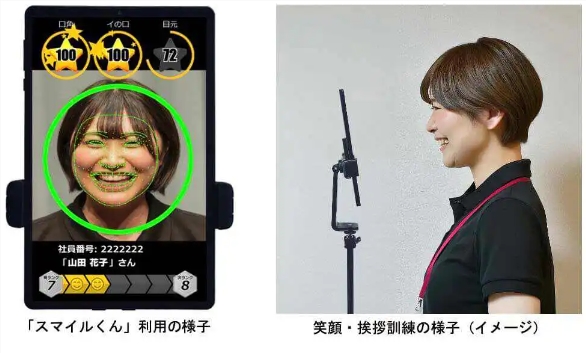In today's pursuit of efficient and humanized management, Aeon, a large Japanese supermarket chain, has sparked widespread controversy by using AI technology to monitor employee smiles.
On July 16, Yahoo Japan reported that Aeon has rolled out an AI system called "Smile-Kun" in 240 stores since July 1. This system analyzes employees' smiles and volume, providing real-time feedback to enhance customer service skills.

The Smile-Kun system requires employees to greet it daily, then scores them based on 450 smile points such as eyes and mouth, with a maximum score of 100. Additionally, the system analyzes employees' volume, speech fluency, and tone in real-time and offers optimization suggestions.
Aeon had already tested the Smile-Kun system in 8 stores for three months starting July last year, involving about 3,400 employees. According to feedback from undercover customers arranged by Aeon, the use of Smile-Kun significantly increased the proportion of smiles by 1.6 times.

Aeon believes that Smile-Kun can make employee training more game-like, reducing the monotony of daily training. Moreover, using AI to track and evaluate employee performance in real-time helps in accurately distributing bonuses, thereby boosting employee motivation.
However, most netizens are opposed to this. They argue that employees' smile levels should vary individually, and for those naturally less inclined to smile, qualitative evaluations by superiors or colleagues would be more appropriate. Some worry that seeing only forced smiles from staff at Aeon could leave a negative impression.
Aeon's approach, while初衷ing to improve service quality, overlooks the authenticity of employees' individuality and emotional expression. Balancing efficiency with employees' feelings and dignity is a question that corporate managers need to deeply consider.









